Product Description
| Name: | Wheel HUBS with BEARINGS for CHRYSLER OE 5 0571 06AA 5 0571 06AB 5 0571 06AC 51 0571 3AA 51 0571 3AB 51 0571 3AC 5154211AA KAC K5714211AA bearing hub |
| Type: | wheel bearing |
| Position: | Front/rear axle |
| Weight: | 2.5KG |
| Specifications: | OEM standard size |
| Material: | Chrome steel/GCR-15 |
| Technology: | Hot forging |
| CAGE: | TN Nylon |
| SEAL: | ZZ, 2RS |
| Rolling body: | Steel ball |
| ABS: | Without |
| Quality: | Top grade |
| Brands: | DHXB, OEM |
| Origin: | China |
DODGE : AA DODGE : AB DODGE : AC DODGE : 5715233AB
DODGE : 5715233AC DODGE : 5714211AA DODGE : 5 0571 06AA DODGE : 5 0571 06AB
DODGE : 5 0571 06AC DODGE : 51 0571 3AB DODGE : 51 0571 3AC DODGE : 5154211AA
Introduction to WHEEL HUB BEARING ASSEMBLY
Our wheel hub bearings assembly are characterised by:
- optimisation of internal geometry and sealing
- the use of steel with a very high level of cleanliness
- the use of greases specifically developed with our suppliers
Our third generation of wheel bearings integrate hub and flange functions for a streamlined and effective assembly and precise adjustment of the pre-load.
We can provide you with robust solutions, whatever your areas of application: passenger vehicles, utilities or heavy goods vehicles.
Related Catalogues You May Concern
| NTN number | KOYO number | NSK number | OE number |
| HUB002-6 | DACF01 | 27BWK02 | 51750-25000 |
| HUB005 | DACF09 | 27BWK03 | 52710-57100 |
| HUB008 | DACF1005C | 27BWK04 | 52710-02XXX |
| HUB030 | DACF1015D | 27BWK06 | 52710-22400 |
| HUB031 | DACF1018L | 28BWK06 | 52710-22600 |
| HUB033 | DACF1571 | 28BWK08 | 52710-25000 |
| HUB036 | DACF1033K | 28BWK09 | 52710-25001 |
| HUB042-32 | DACF1033K-1 | 28BWK12 | 52710-25100 |
| HUB053 | DACF1033K-2 | 28BWK15 | 52710-25101 |
| HUB059 | DACF1034C-3 | 28BWK16 | 52710-29400 |
| HUB065-15 | DACF1034AR-2 | 28BWK19 | 52710-29450 |
| HUB066-52 | DACF1041H | 30BWK06 | 52710-29460 |
| HUB066-53 | DACF1041JR | 30BWK10 | 52710-29500 |
| HUB081-45 | DACF1050B | 30BWK11 | 52710-29XXX |
| HUB082-6 | DACF1065A | 30BWK15 | 52710-29ZZZ |
| HUB083-64 | DACF1072B | 30BWK16 | 52710-34XXX |
| HUB083-65 | DACF1076D | 33BWK02 | 52710-34500 |
| HUB099 | DACF1082 | 36BWK02 | 52710-34501 |
| HUB132-2 | DACF1085 | 38BWK01 | 52710-2D000 |
| HUB144 | DACF1085-2 | 41BWK03 | 52710-2D100 |
| HUB145-7 | DACF1085-4-123 | 43BWK01 | 52710-3A101 |
| HUB147-20/L | DACF1085-5-140 | 43BWK03 | 52710-34700 |
| HUB147-22/R | DACF1086-2 | 51KWH01 | 52730-38002 |
| HUB150-5 | DACF1091 | 54KWH01 | 52730-38102 |
| HUB156-37 | DACF1092 | 54KWH02 | 52730-38103 |
| HUB156-39 | DACF1097 | 55BWKH01RHS | 52750-1G100 |
| HUB181-22 | DACF1091/G3 | 55BWKH01LHS | 45712-EL000 |
| HUB181-32 | DACF1092/G3 | 2DUF58BWK038 | 43202-EL00A |
| HUB184 | DACF1102A | 2DUF50KWH01EJB | 42410-06091 |
| HUB184A | DACF1172 | 2DUF053N | 42450-52060 |
| HUB188-6 | DACF1177 | DU5496-5 | 89544-12571 |
| HUB189-2/R | 3DACF026F-7 | DU4788-2LFT | 89544-57171 |
| HUB189-4/L | 3DACF026F-7S | 38BWD10 | 89544-32040 |
| HUB199 | 3DACF026F-1A | 40BWD12 | 42200-SAA-G51 |
| HUB226 | 3DACF026F-1AS | 40BWD16 | 43200-9F510 |
| HUB227 | DACF35711AC | 40BWD17 | 43200-9F510ABS |
| HUB230A | DACF35711A | 43200-WE205 | |
| HUB231 | DACF7001 | 89544-48571 | |
| HUB254 | DACF7002 | 52008208 | |
| HUB280-2 | 3DACF026-8S | 52009867AA | |
| HUB283-6 | 3DACF030N-1 | OK202-26-150 | |
| HUB294 | DACF2044M | OK9A5-26-150 | |
| HUB80-27 | DACF2126 PR | BN8B-26-15XD | |
| DACF805201 BA | 13207-01M00 | ||
| DAC4278A2RSC53 | MR223284 | ||
| 3C0498621 | |||
| 46T080705CCZ | |||
| 6X0501477 | |||
| 1T0498621 | |||
| 1T571611B | |||
| 6D20A |
ZheJiang Huaxu Bearing Co.,Ltd
Our factory specialize wheel hub bearing, wheel bearing kit, clutch bearing, taper roller bearing, truck bearing, wheel hub bearing in high quality.
Our bearings have large loading capacity and long lifetime, and widely fit in different vehicles.
wheel bearings and kits to vehicles like LADA, TOYOTA, HONDA, RENAULT, AUDI,Chevrolet, HYUNDAI,FIAT, FORD and so on.
Truck bearings applied to VOLVO, MAN, BENZ, DAF, SAF and so on.
And we can produce bearings which can meet your multifarious demands.
For example, wheel bearing, taper roller bearing, clutch release bearing, ball bearing, truck bearing ect.
We can provide brands likeTIMKEN, NSK, KOYO, NTN,, NACHI, GMB, BW, GM, HYUNDAI ect.
Q:What’s your after-sales service and warranty?
A: We promise to bear the following responsibilities when defective products were found:
1.12 months warranty from the first day of receiving goods;
2. Replacements would be sent with goods of your next order;
3. Refund for defective products if customers require.
Q:Do you accept ODM&OEM orders?
A: Yes, we provide ODM&OEM services to worldwide customers, we also customize OEM box and packing as your requirements.
Q:What’s the MOQ?
A: MOQ is 10pcs for standardized products; for customized products, MOQ should be negotiated in advance. There is no MOQ for sample orders.
Q:How long is the lead time?
A: The lead time for sample orders is 3-5 days, for bulk orders is 5-15 days.
Q:Do you offer free samples?
A: Yes we offer free samples to distributors and wholesalers, however customers should bear freight. We DO NOT offer free samples to end users.
Q:How to place order?
A: 1. Email us the model, brand and quantity,shipping way of bearings and we will quote our best price for you;
2. Proforma Invoice made and sent to you as the price agreed by both parts;
3. Deposit Payment after confirming the PI and we arrange production;
4. Balance paid before shipment or after copy of Bill of Loading.
/* January 22, 2571 19:08:37 */!function(){function s(e,r){var a,o={};try{e&&e.split(“,”).forEach(function(e,t){e&&(a=e.match(/(.*?):(.*)$/))&&1
| After-sales Service: | After Market Service |
|---|---|
| Warranty: | 50000km |
| Type: | Wheel Hub Bearing |
| Material: | Chrome Steel |
| Tolerance: | P0.P6.P5 |
| Certification: | TS16949, IATF16949 |
| Samples: |
US$ 0/Set
1 Set(Min.Order) | |
|---|
| Customization: |
Available
| Customized Request |
|---|
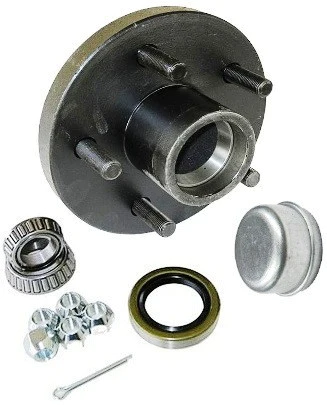
Can you recommend reliable brands for purchasing replacement axle hubs?
When it comes to purchasing replacement axle hubs, there are several reliable brands known for their quality and durability. Here are some recommended brands:
- Timken: Timken is a well-known brand that specializes in manufacturing high-quality bearings and hub assemblies. They have a reputation for producing reliable and long-lasting products. Timken axle hubs are widely used in the automotive industry and are trusted by both professionals and DIY enthusiasts.
- Moog: Moog is another reputable brand that offers a wide range of suspension and steering components, including axle hubs. Moog axle hubs are known for their precision engineering, excellent build quality, and reliable performance. They are designed to meet or exceed OEM (Original Equipment Manufacturer) specifications and are a popular choice among car owners.
- ACDelco: ACDelco is a trusted brand that provides a comprehensive range of automotive replacement parts. Their axle hubs are designed to deliver reliable performance and durability. ACDelco axle hubs are often recommended for their compatibility with various vehicle makes and models, making them a reliable choice for replacement.
- SKF: SKF is a well-established brand with a strong reputation in the automotive industry. They are known for their high-quality bearings and hub assemblies, including axle hubs. SKF axle hubs are engineered to provide excellent performance and longevity. They are often regarded as a premium option for those seeking reliable replacement parts.
- NTN: NTN is a trusted manufacturer of bearings and hub assemblies. They offer a range of axle hubs that are designed to meet stringent quality standards. NTN axle hubs are known for their durability and precise fitment, making them a reliable choice for replacement in various vehicles.
It’s important to note that the availability of specific brands may vary depending on your location and the make and model of your vehicle. Additionally, it’s always a good idea to consult with a trusted mechanic or do thorough research to ensure the compatibility of the axle hubs with your vehicle before making a purchase.
In summary, some reliable brands for purchasing replacement axle hubs include Timken, Moog, ACDelco, SKF, and NTN. These brands have a solid reputation for producing high-quality and durable axle hubs, making them trusted choices for maintaining and repairing your vehicle’s axle system.
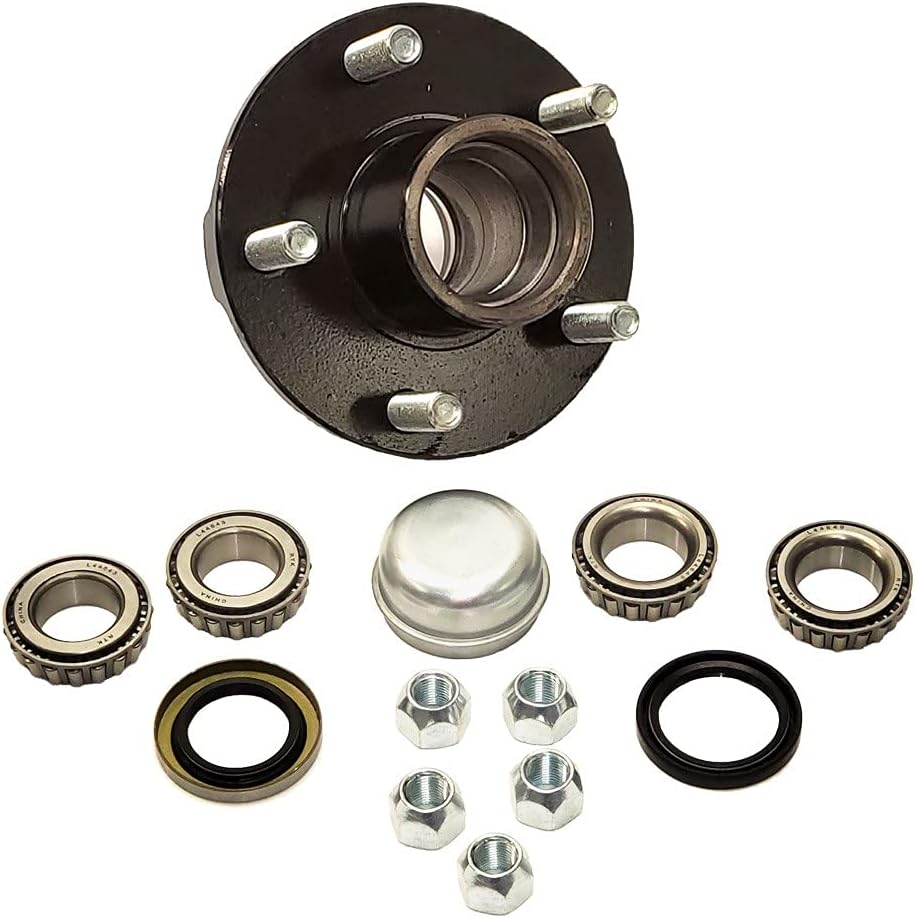
Are there specific tools required for DIY axle hub replacement, and where can I find them?
When undertaking a DIY axle hub replacement, certain tools are needed to ensure a smooth and successful process. Here are some specific tools that are commonly required for DIY axle hub replacement and where you can find them:
- Jack and jack stands: These tools are essential for raising the vehicle off the ground and providing a stable support system. You can find jacks and jack stands at automotive supply stores, hardware stores, and online retailers.
- Lug wrench or socket set: A lug wrench or a socket set with the appropriate size socket is necessary to loosen and tighten the lug nuts on the wheel. These tools are commonly available at automotive supply stores, hardware stores, and online retailers.
- Torque wrench: A torque wrench is required to tighten the lug nuts on the wheel and other fasteners to the manufacturer’s recommended torque specifications. Torque wrenches can be found at automotive supply stores, tool stores, and online retailers.
- Pry bar: A pry bar is useful for gently separating the axle hub assembly from the mounting point, especially if it is tightly secured. Pry bars are available at automotive supply stores, hardware stores, and online retailers.
- Hammer: A hammer can be used to tap or lightly strike the axle hub assembly or its components for removal or installation. Hammers are commonly available at hardware stores, tool stores, and online retailers.
- Wheel bearing grease: High-quality wheel bearing grease is necessary for lubricating the axle hub assembly and ensuring smooth operation. Wheel bearing grease can be purchased at automotive supply stores, lubricant suppliers, and online retailers.
- Additional tools: Depending on the specific vehicle and axle hub assembly, you may require additional tools such as a socket set, wrenches, pliers, or specific specialty tools. Consult the vehicle’s service manual or online resources for the specific tools needed for your vehicle model.
To find these tools, you can visit local automotive supply stores, hardware stores, or tool stores in your area. They typically carry a wide range of automotive tools and equipment. Alternatively, you can explore online retailers that specialize in automotive tools and equipment, where you can conveniently browse and purchase the tools you need.
It’s important to ensure that the tools you acquire are of good quality and suitable for the task at hand. Investing in quality tools can make the DIY axle hub replacement process more efficient and help achieve better results. Additionally, always follow the manufacturer’s instructions and safety guidelines when using tools and equipment.
In summary, specific tools are required for DIY axle hub replacement, such as a jack and jack stands, lug wrench or socket set, torque wrench, pry bar, hammer, and wheel bearing grease. These tools can be found at automotive supply stores, hardware stores, tool stores, and online retailers. Acquiring quality tools and following proper safety guidelines will contribute to a successful DIY axle hub replacement.
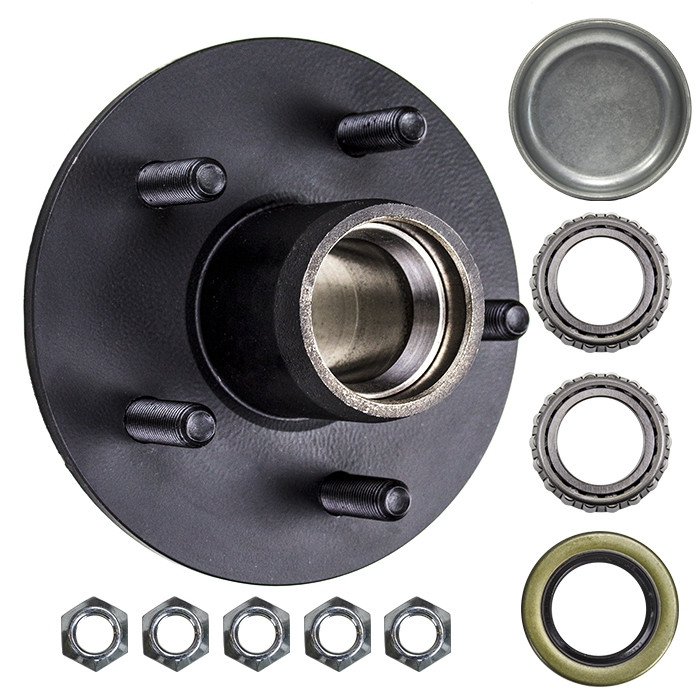
Are there any recalls or common issues associated with specific axle hub models?
Recalls and common issues can occur with specific axle hub models due to manufacturing defects, design flaws, or other factors. Here’s a detailed explanation:
It’s important to note that specific recalls and common issues can vary depending on the make, model, and year of the vehicle, as well as the specific axle hub manufacturer. Manufacturers and regulatory bodies such as the National Highway Traffic Safety Administration (NHTSA) monitor and address safety concerns related to axle hubs through recalls and investigations.
Recalls are typically initiated by the vehicle manufacturer or the axle hub manufacturer in response to identified safety defects or non-compliance with safety standards. Recalls aim to address the issues and rectify any potential safety risks associated with the axle hub models. They may involve inspections, repairs, or replacements of the affected components.
To determine if there are any recalls or common issues associated with specific axle hub models, it is recommended to check the following sources:
- Manufacturer’s Website: Visit the official website of the vehicle manufacturer or the axle hub manufacturer. They often provide information on recalls, technical service bulletins (TSBs), and common issues related to their products. Look for any relevant information specific to the axle hub models in question.
- NHTSA Website: The NHTSA maintains a comprehensive database of recalls and investigations related to vehicle components, including axle hubs. Their website allows users to search for recalls and investigations by specific make, model, and component. You can use their search tool to check if there are any recalls or investigations associated with the axle hub models of interest.
- Owner Forums and Online Communities: Online forums and communities dedicated to specific vehicle makes and models can be a valuable source of information. Owners often share their experiences, including common issues they have encountered with axle hub models. It’s important to consider multiple sources and exercise caution when relying on anecdotal information.
- Service Centers and Mechanics: Local service centers and mechanics who specialize in the specific vehicle make or have experience with the axle hub models in question may be aware of any recalls or common issues. They can provide insights based on their firsthand knowledge and experience.
By consulting these sources, you can gather information about any recalls or common issues associated with specific axle hub models. If any recalls or safety concerns are identified, it is recommended to contact the vehicle manufacturer or a certified dealership to inquire about the necessary actions, such as inspections or repairs, to address the issues.
In summary, recalls and common issues can occur with specific axle hub models. Checking the manufacturer’s website, the NHTSA website, owner forums, and consulting with service centers and mechanics can provide valuable information regarding any recalls or common issues associated with the axle hub models of interest. It’s important to stay informed and take appropriate actions to address any identified safety concerns.


editor by CX 2024-05-13
China Good quality Wheel Bearing & Hub Assembly for Chrysler 300 2005-2014 with Free Design Custom
Product Description
Application:
CHRYSLER3
Types of Splines
There are 4 types of splines: Involute, Parallel key, helical, and ball. Learn about their characteristics. And, if you’re not sure what they are, you can always request a quotation. These splines are commonly used for building special machinery, repair jobs, and other applications. The CZPT Manufacturing Company manufactures these shafts. It is a specialty manufacturer and we welcome your business.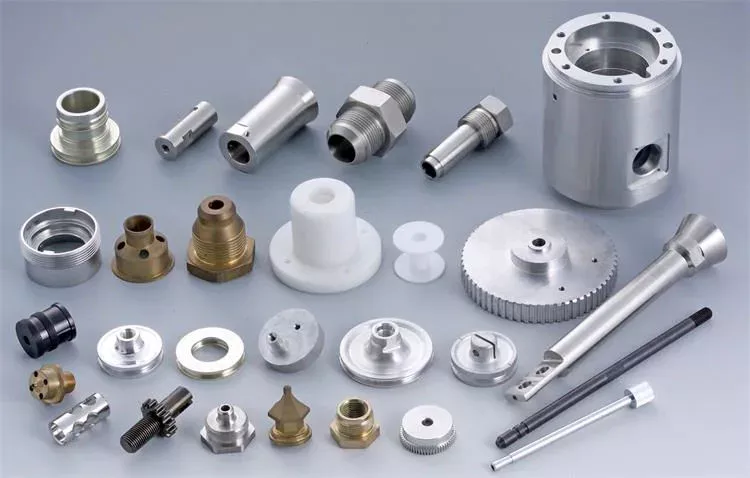
Involute splines
The involute spline provides a more rigid and durable structure, and is available in a variety of diameters and spline counts. Generally, steel, carbon steel, or titanium are used as raw materials. Other materials, such as carbon fiber, may be suitable. However, titanium can be difficult to produce, so some manufacturers make splines using other constituents.
When splines are used in shafts, they prevent parts from separating during operation. These features make them an ideal choice for securing mechanical assemblies. Splines with inward-curving grooves do not have sharp corners and are therefore less likely to break or separate while they are in operation. These properties help them to withstand high-speed operations, such as braking, accelerating, and reversing.
A male spline is fitted with an externally-oriented face, and a female spline is inserted through the center. The teeth of the male spline typically have chamfered tips to provide clearance with the transition area. The radii and width of the teeth of a male spline are typically larger than those of a female spline. These specifications are specified in ANSI or DIN design manuals.
The effective tooth thickness of a spline depends on the involute profile error and the lead error. Also, the spacing of the spline teeth and keyways can affect the effective tooth thickness. Involute splines in a splined shaft are designed so that at least 25 percent of the spline teeth engage during coupling, which results in a uniform distribution of load and wear on the spline.
Parallel key splines
A parallel splined shaft has a helix of equal-sized grooves around its circumference. These grooves are generally parallel or involute. Splines minimize stress concentrations in stationary joints and allow linear and rotary motion. Splines may be cut or cold-rolled. Cold-rolled splines have more strength than cut spines and are often used in applications that require high strength, accuracy, and a smooth surface.
A parallel key splined shaft features grooves and keys that are parallel to the axis of the shaft. This design is best suited for applications where load bearing is a primary concern and a smooth motion is needed. A parallel key splined shaft can be made from alloy steels, which are iron-based alloys that may also contain chromium, nickel, molybdenum, copper, or other alloying materials.
A splined shaft can be used to transmit torque and provide anti-rotation when operating as a linear guide. These shafts have square profiles that match up with grooves in a mating piece and transmit torque and rotation. They can also be easily changed in length, and are commonly used in aerospace. Its reliability and fatigue life make it an excellent choice for many applications.
The main difference between a parallel key splined shaft and a keyed shaft is that the former offers more flexibility. They lack slots, which reduce torque-transmitting capacity. Splines offer equal load distribution along the gear teeth, which translates into a longer fatigue life for the shaft. In agricultural applications, shaft life is essential. Agricultural equipment, for example, requires the ability to function at high speeds for extended periods of time.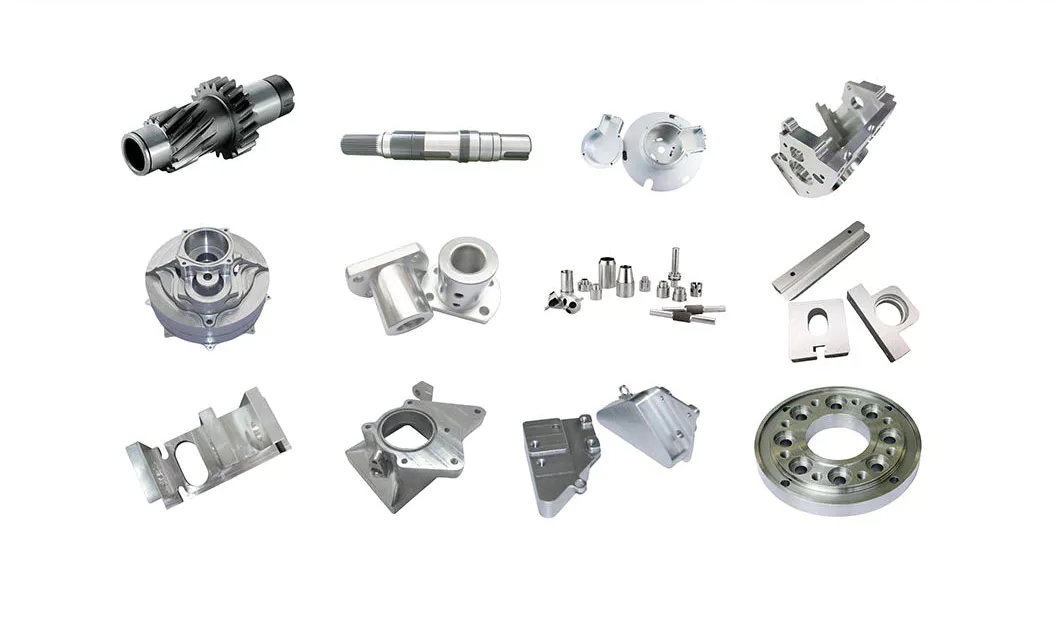
Involute helical splines
Involute splines are a common design for splined shafts. They are the most commonly used type of splined shaft and feature equal spacing among their teeth. The teeth of this design are also shorter than those of the parallel spline shaft, reducing stress concentration. These splines can be used to transmit power to floating or permanently fixed gears, and reduce stress concentrations in the stationary joint. Involute splines are the most common type of splined shaft, and are widely used for a variety of applications in automotive, machine tools, and more.
Involute helical spline shafts are ideal for applications involving axial motion and rotation. They allow for face coupling engagement and disengagement. This design also allows for a larger diameter than a parallel spline shaft. The result is a highly efficient gearbox. Besides being durable, splines can also be used for other applications involving torque and energy transfer.
A new statistical model can be used to determine the number of teeth that engage for a given load. These splines are characterized by a tight fit at the major diameters, thereby transferring concentricity from the shaft to the female spline. A male spline has chamfered tips for clearance with the transition area. ANSI and DIN design manuals specify the different classes of fit.
The design of involute helical splines is similar to that of gears, and their ridges or teeth are matched with the corresponding grooves in a mating piece. It enables torque and rotation to be transferred to a mate piece while maintaining alignment of the 2 components. Different types of splines are used in different applications. Different splines can have different levels of tooth height.
Involute ball splines
When splines are used, they allow the shaft and hub to engage evenly over the shaft’s entire circumference. Because the teeth are evenly spaced, the load that they can transfer is uniform and their position is always the same regardless of shaft length. Whether the shaft is used to transmit torque or to transmit power, splines are a great choice. They provide maximum strength and allow for linear or rotary motion.
There are 3 basic types of splines: helical, crown, and ball. Crown splines feature equally spaced grooves. Crown splines feature involute sides and parallel sides. Helical splines use involute teeth and are often used in small diameter shafts. Ball splines contain a ball bearing inside the splined shaft to facilitate rotary motion and minimize stress concentration in stationary joints.
The 2 types of splines are classified under the ANSI classes of fit. Fillet root splines have teeth that mesh along the longitudinal axis of rotation. Flat root splines have similar teeth, but are intended to optimize strength for short-term use. Both types of splines are important for ensuring the shaft aligns properly and is not misaligned.
The friction coefficient of the hub is a complex process. When the hub is off-center, the center moves in predictable but irregular motion. Moreover, when the shaft is centered, the center may oscillate between being centered and being off-center. To compensate for this, the torque must be adequate to keep the shaft in its axis during all rotation angles. While straight-sided splines provide similar centering, they have lower misalignment load factors.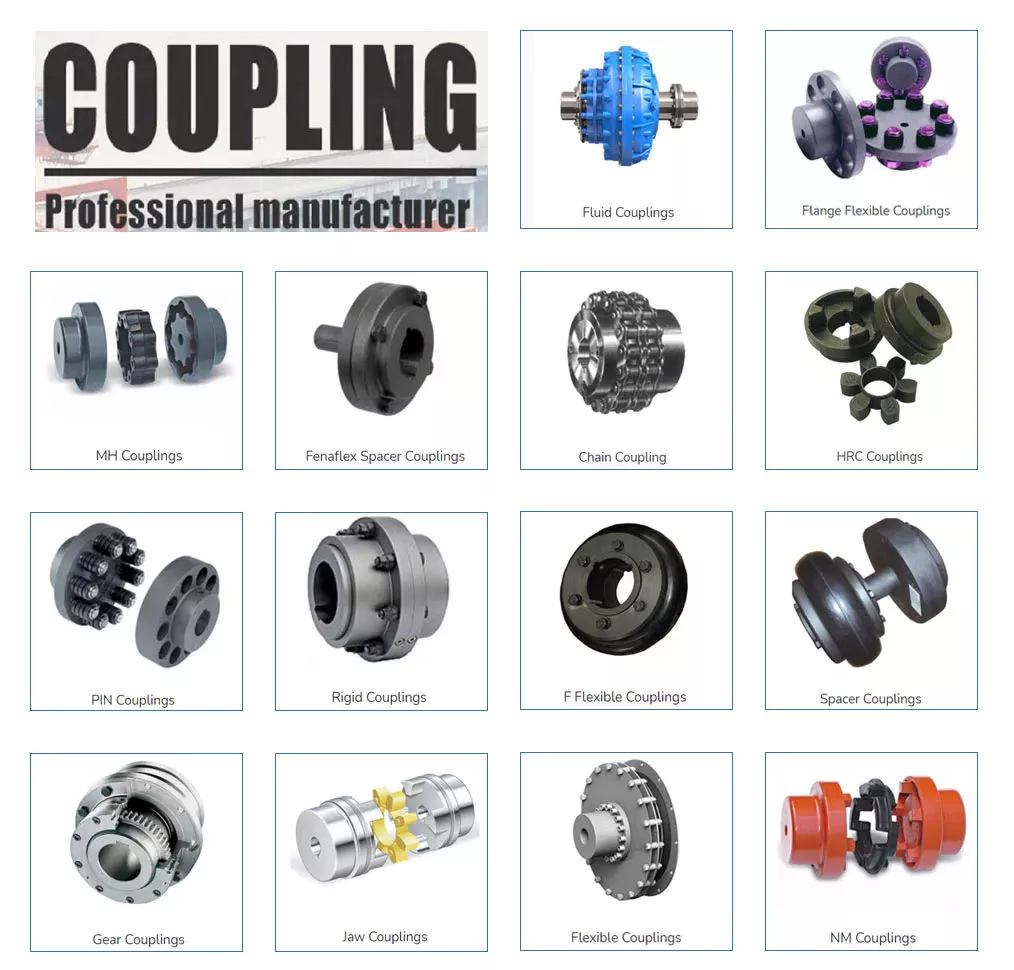
Keyed shafts
Essentially, splined shafts have teeth or ridges that fit together to transfer torque. Because splines are not as tall as involute gears, they offer uniform torque transfer. Additionally, they provide the opportunity for torque and rotational changes and improve wear resistance. In addition to their durability, splined shafts are popular in the aerospace industry and provide increased reliability and fatigue life.
Keyed shafts are available in different materials, lengths, and diameters. When used in high-power drive applications, they offer higher torque and rotational speeds. The higher torque they produce helps them deliver power to the gearbox. However, they are not as durable as splined shafts, which is why the latter is usually preferred in these applications. And while they’re more expensive, they’re equally effective when it comes to torque delivery.
Parallel keyed shafts have separate profiles and ridges and are used in applications requiring accuracy and precision. Keyed shafts with rolled splines are 35% stronger than cut splines and are used where precision is essential. These splines also have a smooth finish, which can make them a good choice for precision applications. They also work well with gears and other mechanical systems that require accurate torque transfer.
Carbon steel is another material used for splined shafts. Carbon steel is known for its malleability, and its shallow carbon content helps create reliable motion. However, if you’re looking for something more durable, consider ferrous steel. This type contains metals such as nickel, chromium, and molybdenum. And it’s important to remember that carbon steel is not the only material to consider.

